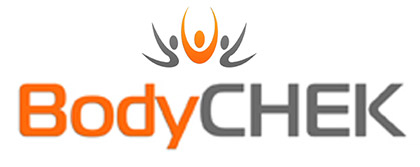With the current economic climate, it is crucially important that we carefully choose how we prioritise our resources in order to live a happy and stress free life.
By resources, I mean our finances and how we choose to spend our time.
For many, the first thing people will do is start to look for cheap goods and cheap ways to spend time. On the face of it, this looks very sensible. Already I hear that we Brits are more likely to go on holiday in the UK this year. I see nothing wrong with that.
Where I think most people need to think very carefully is where they spend their cash on food and health products. I am sure many people are considering reducing the amount of organic food as it is more expensive. But is it really?
If you compare say a conventionally farmed apple with an organic apple, then the price difference will be evident. Interestingly, the conventionally farmed apple will have many expensive petrochemicals added to them in the form of NPK fertilizer, pesticides, herbicides, fungicides and rodenticides. The organic apple will have none of these chemicals added because organic farming allows Mother Nature to take care of all the pests. Also, interesting to note is that organically grown produce has much bigger yields, despite what conventional farmers believe.
If we all voted with our wallets and bought organic produce, the price would start to come down.
The petrochemicals used in conventional farming kills all the micro-organisms in the soil that feed nutrients to the plants. This means that not only does the conventionally farmed produce contain toxic materials, but they also have much fewer nutrients.
A lack of nutrients and toxic ingredients can only reduce health and not add to it. Do you really want to be feeding your children (or yourself) with toxic, nutrient deficient food? Not only will these toxic foods reduce your health, but a lack of nutrients will also trigger hunger and over-eating, which as we know leads to obesity!
The appestat, the part of the brain that controls satiety, will continue wanting more food when it receives the signals of a food entering the body, but then doesn’t find any or fewer of the expected nutrients. So what I am saying here is that when you eat organic, nutrient rich food, you don’t need to eat as much, because the appestat will be satisfied that is has consumed the right amount of nutrients for the body’s needs.
So how much does it cost us financially and emotionally when we are sick? We often have to pay someone to help us become well again or we pay for medications that just keep us sick (medications simply do not cure ill-health). Ultimately, we all want to be happy, this is the ultimate goal of life. How good do you feel when you are sick? Normally, you feel pretty bad, right?
In addition to your own health, there is also an environmental price to pay of conventional farming. Conventional farming is the third largest user of fossil fuels in the world and if we don’t buck this trend now, quite simply our children will have no environment in which to live.
In addition, to the environmental price to pay, if we don’t change to organic farming practices now, when all the fossil fuels run out, there won’t be any food to eat. Then World War II will look like a children’s tea party.
So my question is? How do you prioritise your resources? Well, be sure you know what you want in life. Be clear on that. Then, only spend time doing things that will lead you to being happy. In the current economic climate, many are losing their material assets. However, your health (physical, psychological and emotional) is your most important asset. It is more important than the size of your house, how fast your car goes, how big you wide screen TV is, or where you go for your holidays.
Get clear on what you want, prioritise your resources, drink plenty of good water, eat organic food, exercise daily, stop watching TV, get to bed early, don’t sweat the small stuff and have fun with those who are important to you and be kind and courteous to all around you!
